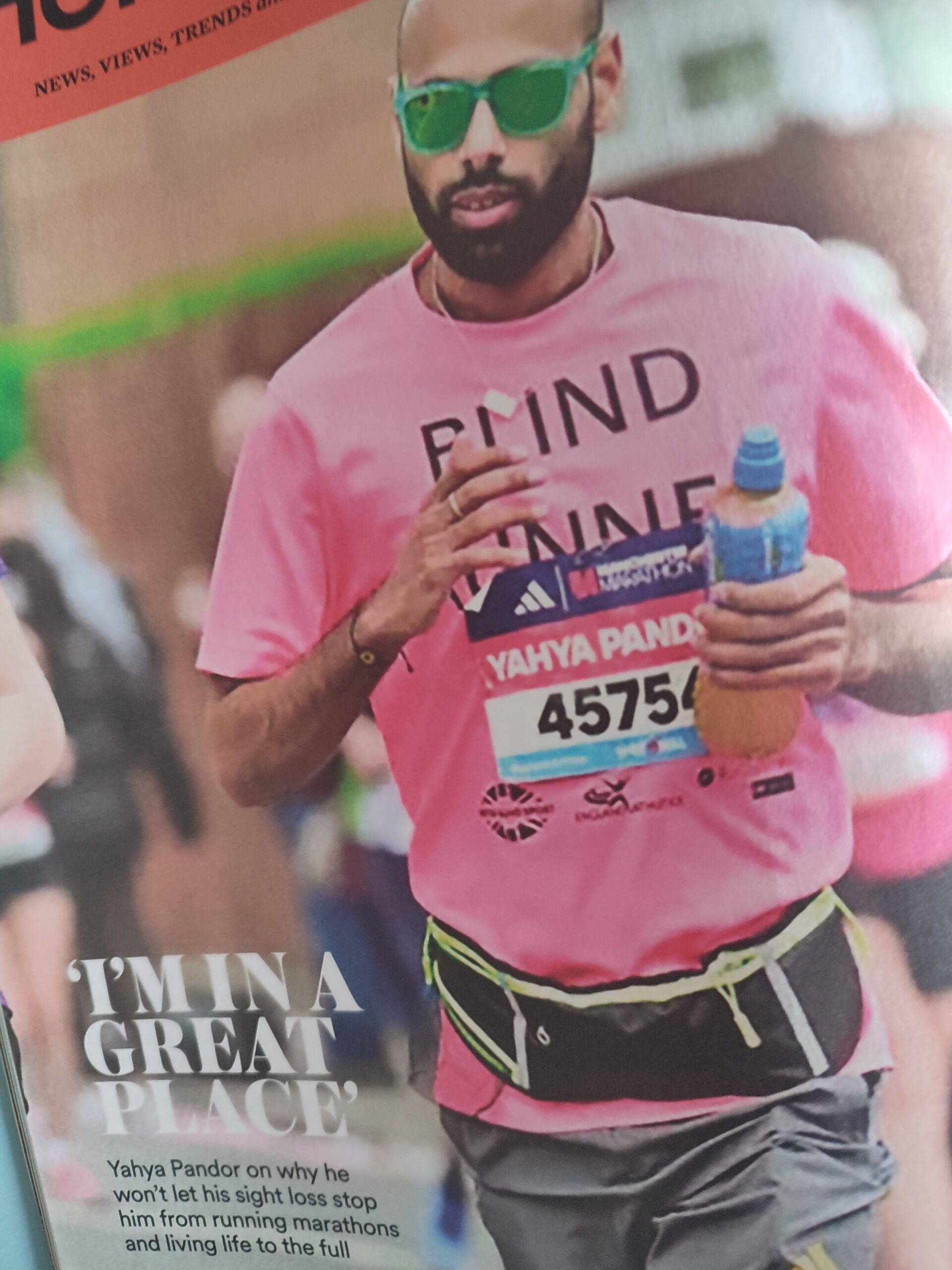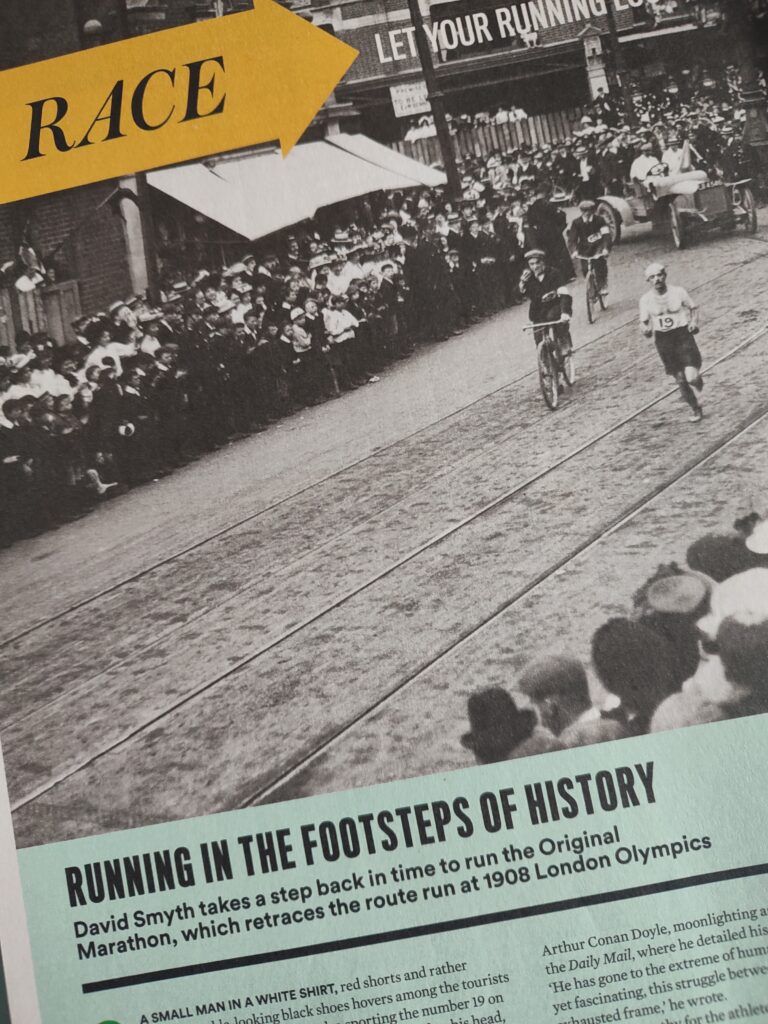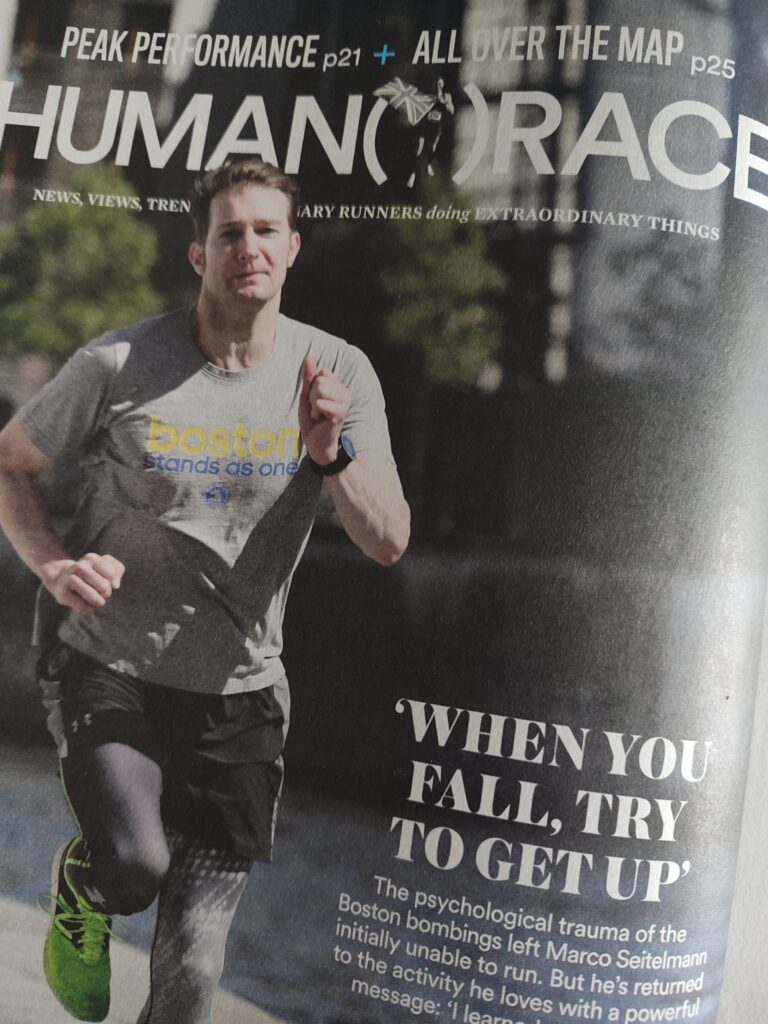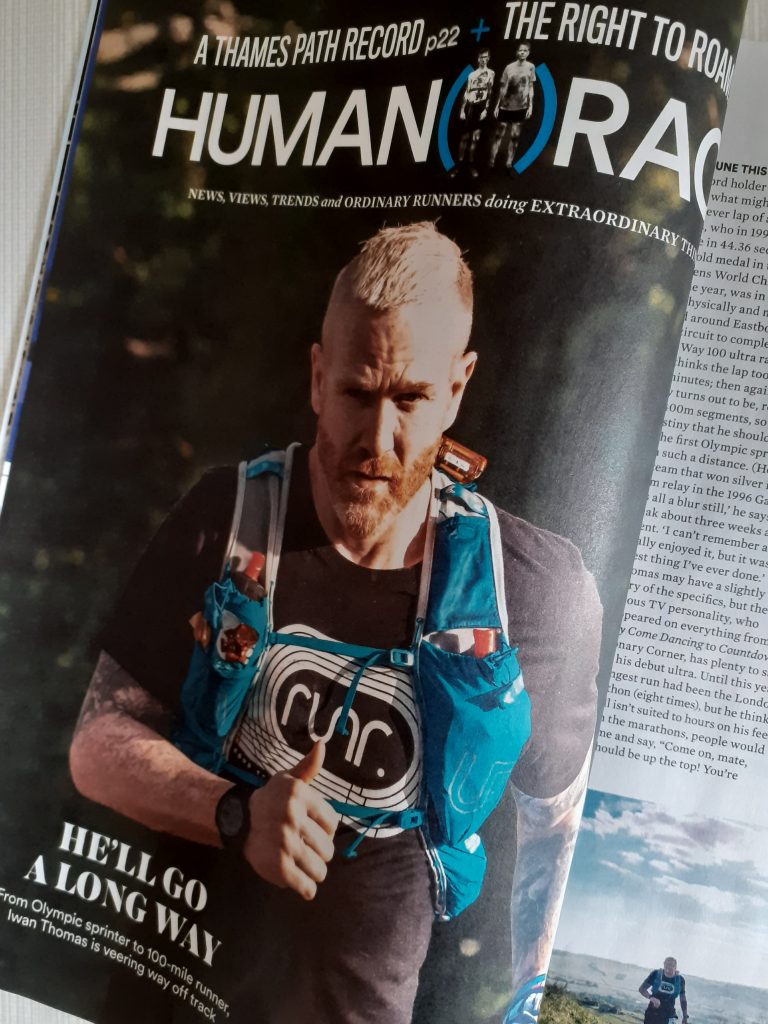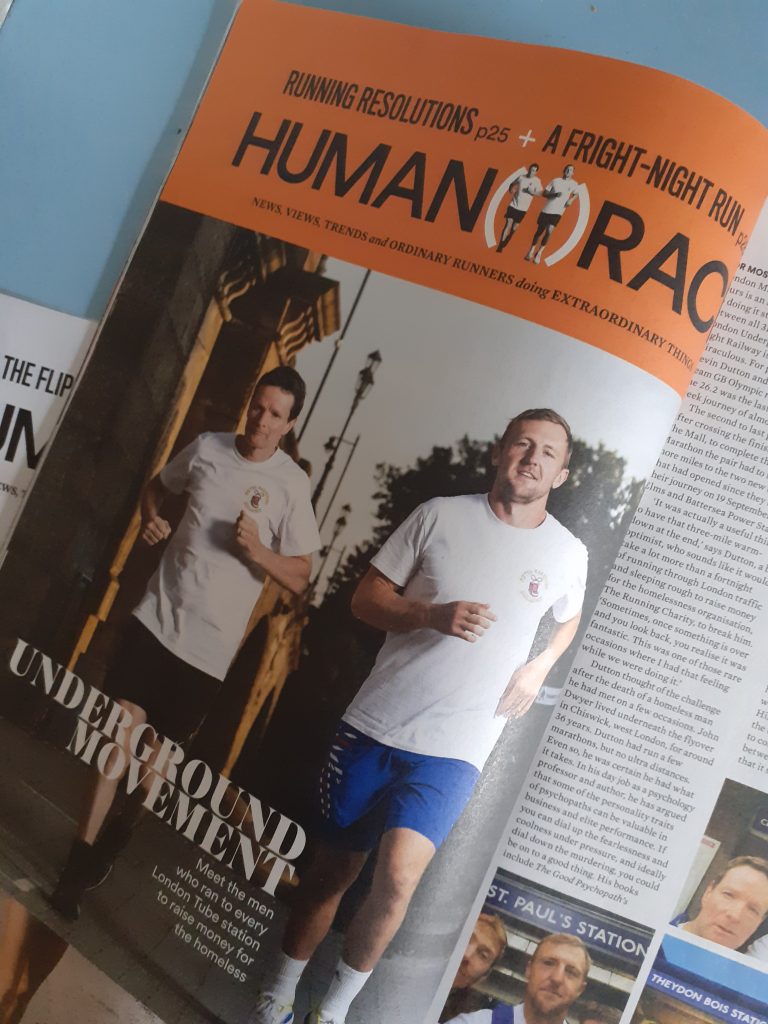YAHYA PANDOR – blind marathon runner – Runner’s World, Sept 2024 issue
On the day that Yahya Pandor found out that he was going to lose his sight, he walked out of the hospital and into a post. It was a sign of his shocked, distracted state rather than how bad things had got already, but they did get very bad very quickly after that.
During the pandemic, Yahya was diagnosed with macular degeneration – damage to his retinas. A keen shooter of rifles and clays, the 29-year-old from Gloucester had first noticed a problem when he could no longer see his targets clearly. After that, ‘From being able to see to pretty much not being able, it took about eight months,’ he says. Now he only has some perception of light and darkness.
It was a frightening time, during which he says he went through the five stages traditionally associated with grief. ‘Losing something so fundamental and having to change basically everything that you do, it was a mourning process,’ he says. ‘I was mourning for a life I’d envisaged that I would no longer live. But you come through that to an acceptance that bad things happen to people all the time.’
Yahya has been particularly unlucky though. Macular degeneration more commonly happens to people approaching retirement age. In addition to that, he details a veritable royal flush of additional eye problems: ‘I have cataracts in both eyes, I have bent optic nerves, I have photophobia – sensitivity to light, hence my dark glasses – and I have odd-shaped pupils that don’t let in the light correctly. There’s also a family history of eye issues. Both of my aunties will probably lose their vision, my grandfather has bad vision through diabetes, and nearly everyone has strong glasses prescriptions.’
Not a particularly active person beforehand, his sight loss led him to sport, initially for a negative reason. The first time he went out with a white cane in Gloucester, a group of teenagers accosted him. ‘I could hear them saying they were going to attack me. Luckily all they ended up doing was screaming in my face, which was uncomfortable, but it could have been much worse.’ It prompted him to take up ju-jitsu for self defence. ‘I could do it because it’s touch-based so you’re generally gripping on to someone. It was interesting as my first experience of sport as a blind person, but it wasn’t really enough to get me physically fit.’
Last year his sister encouraged him to sign up to the Run Cheltenham half marathon with her. That was his motivation to start running. At his first parkrun, he wasn’t fit enough to get beyond the 3km mark, but he soon improved through a combination of running on his own on a treadmill at the gym, and running outdoors with a succession of guides he found through the charity British Blind Sport.
It’s a special skill to be a guide runner, he says. England Athletics will certify people as licensed guides after a sight loss awareness and guide running workshop, a DBS check, and safeguarding and first aid training. ‘You have to put an awful lot of trust in someone,’ says Yahya. ‘Communication is so important, because out on the streets there’ll be people, posts, trees, bumps, and they’ll have to describe everything to you in advance of it coming.’
In April this year, he decided to make things even harder for himself. At the Adidas Manchester Marathon, he became the first blind person to complete the distance without being tethered to a guide. Usually the runner and their guide hold a short tether in their hands between them. Yahya’s guide simply ran beside him giving instructions. Guinness are currently verifying it as a world record.
Extraordinarily, he completed the distance in a time of 4:22:23, and he’d only met the guide, George Giles, in person that morning. They had spoken on the phone a few times at the training stage. ‘It did feel very difficult because in such a big marathon there are so many people around you, runners and spectators, and so much noise,’ says Yahya. ‘Trying to tune in and focus on his voice was a test of mental strength, stamina and endurance, as well as the obvious physical test.’
It was his most high profile achievement when he was already known as a bit of a public figure. A TikTok account set up by his younger brother Isa has amassed over 13,000 followers. Although the short videos do contain some serious information about the realities of Yahya’s life without sight, they mostly involve Isa teasing him. ‘Humour is a great way of connecting with people, and it is something that helps a lot of people cope in dark situations,’ says Yahya. ‘I’ve always had a fairly dark sense of humour, so it’s worked out well.’
Now he understands that he didn’t just do the marathon to get a record. Running remains a big part of his life. ‘It’s something I get great joy from,’ he says. ‘One day I went to the gym to do a two hour run on the treadmill. When I got there I found that my headphones had died. I ran the two hours without listening to anything and was completely at peace with myself. I thought, you know what? I’m in a great place.’
Even so, one more challenge awaits him: now he needs to find faster guides.
britishblindsport.org.uk/findaguide
englandathletics.org/take-part/programmes/findaguide/become-a-guide-runner/
